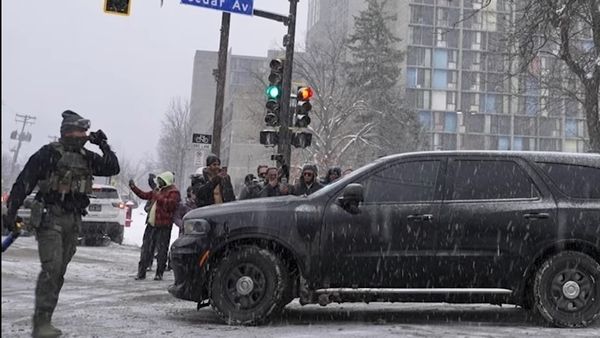
There is a silent, invisible apartheid happening in Taiwan. It is unheard of largely because only a vocal few, outside of a mostly anti-migrant worker local media, will talk about it. Fewer still will listen with an open mind, a sense of true objectivity, and an eye toward finding real, tangible solutions, though that number is growing.
It goes unseen, for the most part, because those being discriminated against are, as in most systems of race-based oppression, kept separate from the empowered and privileged majority. It goes unseen also because it is unpleasant to look at, and like most things unsightly, it is far easier to look the other way.
Of course, I speak of the ill treatment of Taiwan’s Southeast Asian migrant workers, particularly, in this case, those employed in their tens of thousands in Taiwan’s factories.
It is only now, as the Covid-19 pandemic arrives on Taiwan’s shores over a year after it has impacted the rest of the world, that Taiwan’s two-tier approach to its foreign residents has truly come to light.
Throughout the country, as most locals and Western white-collar expatriates in cities and towns from north to south, east to west, live under “Level 3” restrictions on gatherings, blue collar workers from Southeast Asia in Miaoli can only dream of freedoms such as going out to buy their own food, or even going outside at all, for that matter.
On Tuesday, the county magistrate Hsu Yao-chang announced in a Facebook post that all migrant workers in Miaoli are not allowed to leave their home. Since then, factory workers in Miaoli’s semiconductor industry, employed at facilities where the workforce numbers in the thousands, have been unlawfully confined to their dormitories, been stopped and summarily questioned and threatened with fines by police if found on the streets, and reportedly, in some cases, been made to sign documents stating that, if they contract Covid-19, they alone will bear the expenses for their treatment.
On June 9, Miaoli County extended the blanket stay-at-home order to caregivers as well, after locals complained that caregivers, when taking their elderly wards out for fresh air and/or exercise, were “chatting in groups.” All migrant workers, if living separately from their employer, said a statement issued by the Miaoli County Government, could only go to and from work if transported either by their employer or by their employment broker.
In response to Miaoli’s order, the Central Epidemic Command Center, which decides Taiwan’s Covid-19 policies, called on the local government yesterday to implement regulations based on the Level 3 alert for Covid-19. The government has not taken any action to revoke the policy, though legislators have questioned the legality of the order.
This would be shocking, if it were anything new. But it isn’t. Rather, it is merely an extension of what the system of laws pertaining to Taiwan’s migrant workforce has always been — a set of rules which amount to legalized oppression and legislatively-backed racism.

Talk to any migrant worker employed at a factory (if you can find one off factory property, that is), and they will tell you about what their lives are confined to. Most often, their existence is bound to two places: the factory floor and the factory dorm. The dorms have a curfew. Stay out past the appointed hour, and the worker risks losing their job, their work visa, and thus their ability to stay in Taiwan. The dorms are often spartan, crowded places, at times with up to a dozen workers sharing a single small room, sleeping military style on narrow bunks.
Unlike Western white-collar workers, Southeast Asian migrants cannot convert to an employment-seeking visa if they lose their jobs, for whatever reason. If dismissed for breaking curfew, their fate, most likely, is deportation, and possible black-listing among the employment brokers who control the access to factory work in Taiwan. Something as simple as staying out too late, in other words, can result in a loss of livelihood and legal status.
Imagine a population — a minority group — having their movements arbitrarily controlled. Imagine them being governed by a completely separate set of laws, and a lesser set at that, offering them fewer protections, more restrictions, and far less freedoms. What would you call that?
Though factory workers are covered by Taiwan’s Labor Standards Act (while caregivers and deep-sea fishermen are not), it is applied in a manner far from equal to that given to locals and Western expatriates. Instead, it is subject to caveats and asterisks.
It is the Labor Standards Act Lite, in which factory workers may be protected, but also wherein extralegal agreements or measures, such as confinement, paying out of pocket for treatment for injury or illness incurred on the job, and various other malpractices foisted upon migrant workers by the corrupt labor brokerage system that levies dubious fines, fees, and crippling interest payments on loans taken out just so they can come to Taiwan upon people who are, more often than not, entering into one-sided contracts from a place of economic disadvantage.
In other places in the world, the word that has been used to describe such circumstances is apartheid, a word so terrible that to speak it out loud or read it on the screen or the printed page is to conjure awful images in the mind — the worst of the worst of humanity. Now, sadly, it is a word that must be applied to Taiwan, a country that is otherwise a beacon of hope, diversity, acceptance and democracy in Asia.
There is hardly a government on planet earth that is without blood on its hands, even those that are deemed democratic and progressive. Such is the nature of modern, liberal, ultra-capitalistic governance that there are those people the systems in place exploit, take for granted, or in the most benign cases merely neglect, allowing them to slip through the cracks.
The Southeast Asian people who come to Taiwan to work in the country’s factories, care for the sick and elderly, and do the dangerous and grossly underpaid work in the fishing fleet, are exploited, they are taken for granted, and they are summarily neglected, and have been by successive governments from the 1990s onward who arranged for their coming here to help build Taiwan’s prosperity.

Taiwan’s democracy, its affluence, have come at a cost — a human cost that is not only measured in the lives of Taiwanese themselves who sacrificed for this great land, but in the lives of those who have never been given a path to citizenship or even to permanent residence, barring marriage, in the nation they have helped to build and maintain by giving of their strength, their skill, and their character.
Taiwanese administrations from the relatively recent dawn of Taiwan’s democracy to present have said to those who come from the Philippines, Indonesia, Vietnam, and Thailand that they may stay, for a while, as guests. They may strengthen Taiwan’s social fabric with their needed labor. But when their time is up (12 years, or four three-year contracts), they must go elsewhere. Their job is done. Their value, in the eyes of labor officials, businesspersons, and society itself, is all used up.
So, sadly, it doesn’t surprise when, as the pandemic has taken hold in Taiwan in recent weeks, we have witnessed a continuation of the policies that have set the “migrant” Southeast Asians in Taiwan apart from the locals, and the much more vaunted “expatriates.”
While the Tsai administration eases immigration for so-called high-value workers in finance, education and other white-collar industries via the Employment Gold Card program and other initiatives undertaken to turn this country into a hot destination for highly educated professionals, it forgets that it is not the slick startup founder who puts in a 12-hour shift on the factory floor, making the semiconductor chips the world covets — the backbone of Taiwan’s economy. It is not the crypto trader fleeing the Covid crisis in their own country who cares for this country’s old and infirm.
And yet, it is the trader and the founder, the white entrepreneur, that Taiwan covets most and treats best. These are the people featured in puff pieces dubbing Taiwan the “Best Place in the World for Expats.” It is the factory worker and the caregiver it treats as an afterthought, if they are given thought at all. Only when times are at their worst are Southeast Asians in Taiwan given any amount of consideration, it seems, and when they are considered, they are regarded as one thing and one thing only: as scapegoats.
This is neither fair, just, nor warranted. This, like any system of apartheid, is shameful. Taiwan has led Asia in many aspects in recent years, such as marriage equality. It can lead again in the way it treats its most vulnerable, most undervalued people. But it has yet to do so. And if the current situation continues, where migrant workers are wrongly blamed for spreading Covid, when in fact they contract it due to being imprisoned in criminally overcrowded dormitories and forced to continue working in cramped conditions, then Taiwan has no grounds for trumpeting itself as a bastion of human rights and progressive ideals.
For Taiwan to truly be what it purports to be, it must face this uncomfortable truth.
READ NEXT: Equal Rights for Migrant Workers Now
TNL Editor: Bryan Chou, Nicholas Haggerty (@thenewslensintl)
If you enjoyed this article and want to receive more story updates in your news feed, please be sure to follow our Facebook.







